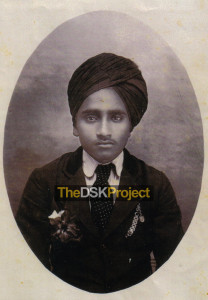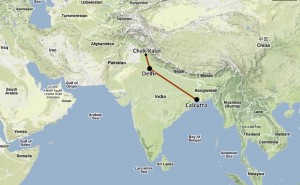Author: Aman Virdy
This is the story of my Great-Grandfather, Dial Singh Kalsi, or Pitaji as his children, grandchildren, and great-grandchildrer refer to him. The story begins in December of 1898 in British India.
Pitaji was named Kartar Singh, born to his parents Labu Ram (Gurdiala) and Indi? in the village of Chak-Kalal in Punjab, British India. He was the youngest of three children, having two older sisters, Ishri and Peshri.
At less than 5 years of age, he had lost both his parents to the plague that swept through the area during the time. As he was tragically orphaned at such a young age, Pitaji was raised by his grandparents, Natha Singh and ?.
Tragically, at the age of 10, his grandparents also passed away and he left to live with Ishri, his elder married sister. Accompanying his brother-in-law, Tega Singh, at age 15 Pitaji began his journeys and went to Calcutta on the Eastern coast of the country.
In Calcutta, he worked as a grocery delivery personnel and at less than 16 years of age in the early 1900′s, he also obtained a driver’s license.
He later moved to New Delhi after deciding that he wasn’t satisfied with what Calcutta had to offer him as he had greater ambitions. Working in carpentry, Pitaji learned the trade which subsequently helped his future endeavors. In addition, he also manufactured harmoniums (an Indian musical instrument) and tuned pianos.
While in Delhi, Pitaji was enlisted in the British Indian Army during the First World War and was stationed in Basara (now called Al-Basrah) in Iraq. At the end of the war, he immigrated to Dar-es-salaam in Tanganyika (now Tanzania) and acquired a job as a carpenter with the Public Works Department. And so began the legacy of Pitaji as he commenced his journey to East Africa to start a new beginning.



